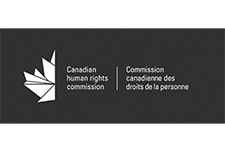Discover financial empowerment resources
Discover financial empowerment resources
Braiding Mind, Body, and Spirit: A Financial Wellness Bundle is a resource designed to help Indigenous individuals, families, and communities make confident money choices with settlement funds. This 60-minute webinar brought together the co-creators of the resource to highlight the need for...
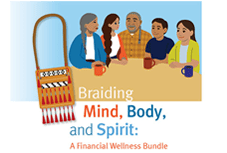
A culturally grounded resource to support Indigenous financial wellness. Braiding Mind, Body, and Spirit is a financial wellness bundle created by and for Indigenous individuals and communities. Developed with Indigenous teachings, community voices, and practical tools to support individuals,...
Ontario faces three crises in housing – attainability, affordability and homelessness. These crises were and are exacerbated by the ongoing COVID-19 pandemic. The economic chaos created as our American allies become difficult neighbours threatens to pile on top of the COVID-19 damage before our...
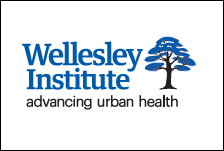
This article analyses results from the Canadian Housing Survey, 2022 , using new variables on homelessness and factors contributing to regaining and maintaining housing. The paper provides a descriptive overview of different types of homelessness experiences in Canada, highlighting select...

From 2019 to 2022, among Indigenous people aged 18 years and older, 54.3% of Inuit reported having a regular healthcare provider, along with 81.4% of First Nations people living off reserve and 84.5% of Métis. This is compared with 85.7% of the non-Indigenous adult population. Released...

The CRA has put together a website for what Indigenous Peoples should know about the tax return they send to the Canada Revenue Agency (CRA), and how that return can result in various benefit payments. This includes information on tax exemption and who is eligible. There is also information on...

In 2024, close to half of First Nations people living off reserve (45%) and Métis (44%), and more than half of Inuit (54%) (all aged 15 years and older) reported that it was "difficult" or "very difficult" in the 12 months preceding the survey to meet their financial needs in terms of...

Money Smarts: My Financial Journey is an engaging board game designed for Indigenous youth aged 12 and older. The game introduces players to essential financial literacy concepts through realistic scenarios, encouraging them to develop practical skills for managing their own financial...
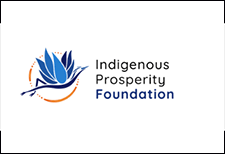
The Monthly Financial Well-being Monitor is a survey designed to collect information about Canadians' day-to-day financial management and financial well-being. It collects data from approximately 1,000 respondents per month and is a continuation of the COVID-19 Financial Well-being Survey, which...
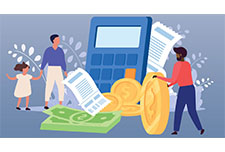
The CRA's Indigenous strategy takes inspiration from the United Nations Declarations on the Rights of Indigenous Peoples and contributes to the Government of Canada’s efforts to advance reconciliation. It presents an integrated approach to improve trust and ensure that our services are...
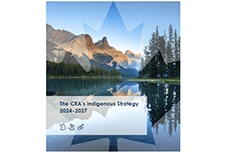
Every day in Canada, nearly 1 in 4 people worry about eating, compromise on the quantity and quality of their groceries and/or go without food due to financial constraints. Food insecurity disproportionately impacts some groups, including Indigenous and racialized peoples, people with...
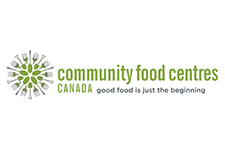
The 2021-2023 Building Financial Wellness in First Nations (FWFN) project - led by Prosper Canada and funded by IG Wealth Management - aimed to integrate culturally appropriate financial wellness supports into existing services in Manitoba and Ontario First Nation...
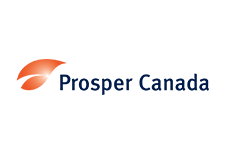
Explore the history, languages, cultures, and experiences of Indigenous Peoples in Canada. Click on "Access this resource" to visit the Crown-Indigenous Relations and Northern Affairs Canada website that has resources on First Nations, Inuit and...

This CRA site has information on what Indigenous Peoples should know about the tax return they send to the Canada Revenue Agency (CRA), and how that return can result in various benefit payments. There's also information on available tax filing...

Statistics Canada has updated preliminary estimates of the Indigenous economy, defined as gross domestic income (GDI) earned by Indigenous workers and Indigenous-led businesses (where 50% +1 of the owners identify as Indigenous), along with data on jobs held by Indigenous people. This latest...

Sustained investment in Native American small business development is imperative to a philanthropic agenda focused on economic justice. Philanthropy centers justice and expedites the growth of Native American wealth building by channeling grant dollars and impact investments toward the ecosystems...
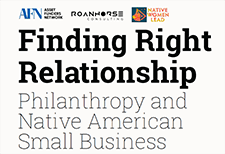
Despite the fact the story is three years old, it made the rounds online again, and it's also still valid. Indigenous women are starting new businesses at twice the rate as Indigenous men, but they face significant barriers to accessing funding. This is something that hurts everyone -...

This 60-minute webinar for frontline practitioners, social service providers, and funders shares insights from a two-year project designed to help build financial wellness in isolated and rural First Nation communities in Manitoba and Ontario. Partnerships between First Nation communities and...

Many people living in First Nations communities do not have access to housing that is safe and in good condition—a fundamental human right. Improving housing for First Nations is vital for their physical, mental, and economic health and well-being. This is the fourth time since 2003 that we...
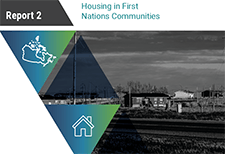
Internet use in Canada is prolific, with 94% of Canadians going online for personal use in 2022, up from 91% in 2018. Not only are more Canadians using the Internet since the COVID-19 pandemic, but more are managing their personal and household finances online. Based on data from the Canadian...

Reaching Home: Canada's Homelessness Strategy is a community-based program aimed at preventing and reducing homelessness across Canada. This program provides funding to urban, Indigenous, rural and remote communities to help them address their local homelessness needs. Click "Access this resource"...

Upwards of 450,000 Indigenous people identify as having a disability, functional, or activity limitation, but it is unknown how many of those people are women, girls, or gender diverse because of inaccurate and insufficient data. Indigenous people are more susceptible to living with a disability...
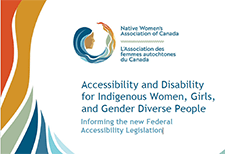
Canada's homeless encampments are a national human rights crisis. A growing number of people in Canada are having to live in tents or informal shelters to survive due to a lack of affordable housing, limited support services, and nowhere safe to go. Recognizing the severity of this crisis, the...
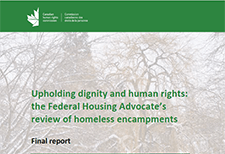
Food insecurity is a significant public health problem for Indigenous peoples in Canada. A comprehensive literature review is needed to organize the evidence according to the 4 pillars of food security (i.e., availability, access, utilization, and stability) and identify gaps in the published...
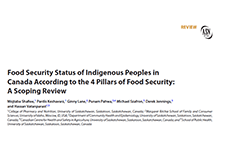
The Office of the Federal Housing Advocate released their annual report to the federal Housing Minister, outlining findings from submissions they received from 2022 to 2023 through their online public submission process that allows people from across Canada to report directly to the Advocate...
